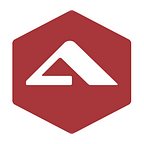Cloud Foundry Advisory Board Call, May 2022: Korifi Enters Beta
The Korifi project reaches its first major milestone. Call for nominations is currently ongoing for new Technical Oversight Committee members.
The Cloud Foundry Community Advisory Board (CAB) meeting in May featured a live demonstration on how to deploy Korifi, a project bridging Kubernetes and CF, on kind clusters. In addition to the demo, there were a couple of key announcements from the foundation. The call was moderated by Ram Iyengar from the CF Foundation.
Korifi v0.1 is out
As explained at the CAB meeting in April, Korifi is the third community iteration of putting Cloud Foundry and Kubernetes together (KubeCF and cf-for-k8s being the first and second). The goal behind the Korifi project is to integrate more thoroughly with Kubernetes resources and create an architecture that is more modular and extensible in comparison to cf-for-k8s and KubeCF.
Ram announced that the project had entered the beta phase with the release of v0.1. Some of the features highlighted in the beta release include:
- integration with Kubernetes cluster authentication, where every Kubernetes user is also a Korifi user, and
cf loginwill automatically integrate with kubectl configuration regardless of the cluster provider - support for the traditional Cloud Foundry authorization model based on orgs, spaces, and roles, which will translate to Kubernetes namespaces and role bindings
- support for basic application workflows, such as push, delete, scale, start, stop, restart, and restage
- support for route workflows — including create, delete, map, and unmap
- support for user-provided instances
- exposing all features via a REST API compatible with the Cloud Foundry v3 API and via Kubernetes-native custom resources
Read the meeting notes to learn more about Korifi’s latest release and other community updates.
